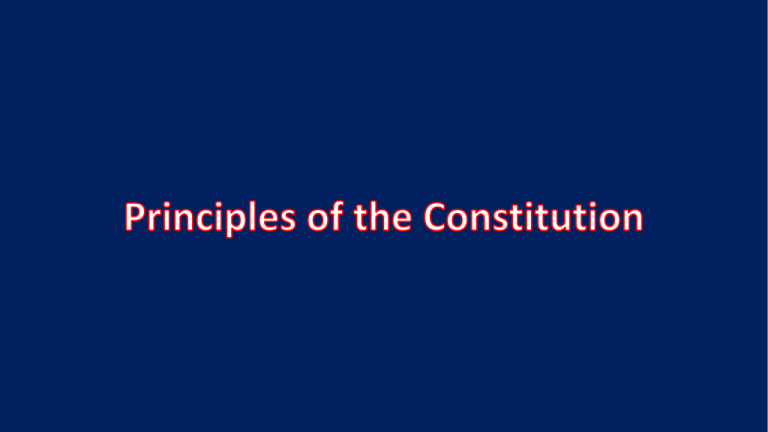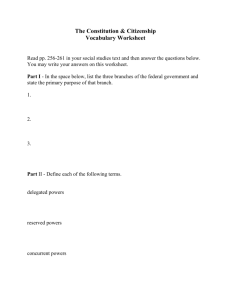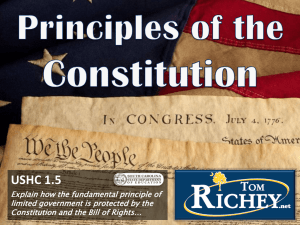Standard 1.5 - Principles of the Constitution
advertisement

FEDERALISM CHECKS & BALANCES SEP. OF POWERS BILL OF RIGHTS Delegated Powers Powers that are given to the federal government. Reserved Powers Powers that are kept by the states & the people. Concurrent Powers Powers shared by both national & state gov’ts. In federalism, the Constitution divides power between the national government and the state governments; refer to the 10th Amendment. “The powers delegated by the proposed Constitution to the federal government, are few and defined. Those which are to remain in the State governments are numerous and indefinite. James Madison Federalist No. 45 The former will be exercised principally on external objects, as war, peace, negotiation, and foreign commerce….The powers reserved to the several States will extend to all the objects which…concern the lives, liberties, and properties of the people…” Admit New States Coin Money Declare War Collect Tariffs Foreign Policy Army & Navy Weights & Measures National Defense FEDERAL (Delegated) Punish Treason Regulate Interstate Commerce Propose Amendments Regulate Foreign Trade Immigration Education Establish Courts Organize Militia SHARED (Concurrent) Taxation Establish Local Governments Marriage Laws STATE (Reserved) Ratify Amendments Regulate Intrastate Commerce Montesquieu • French philosopher • Wrote The Spirit of the Laws (1748) – a separation of powers protects liberty as one branch can keep another branch from infringing on liberty LEGISLATIVE (Congress) MAKES Laws EXECUTIVE (The President) ENFORCES Laws JUDICIAL (Courts) JUDGES Laws The Veto • Latin meaning “I Forbid” • President can check legislative power of Congress with a veto, but… • A 2/3 vote in both houses of Congress can override • CLICK HERE! FEDERALISM CHECKS & BALANCES SEP. OF POWERS Characteristics come together to create an ordered government – one in which government’s power is limited and individual liberties are protected BILL OF RIGHTS




